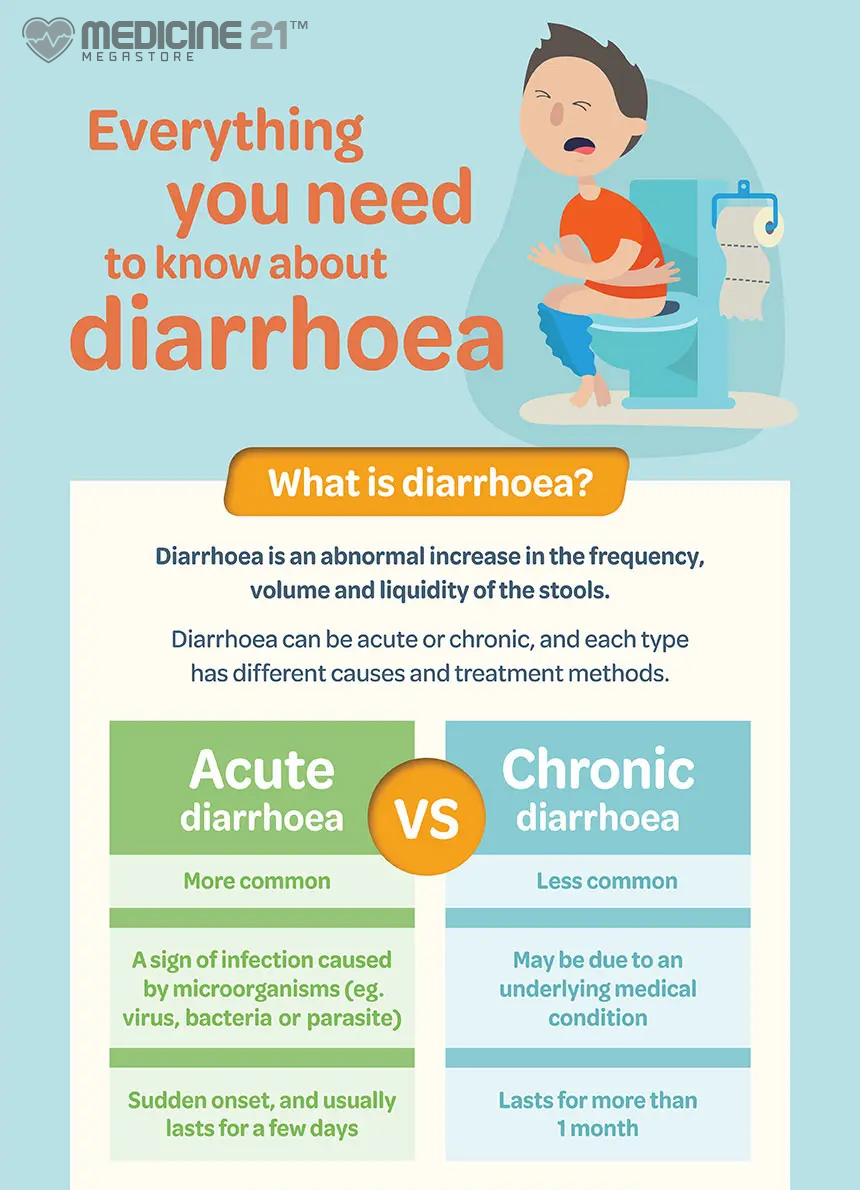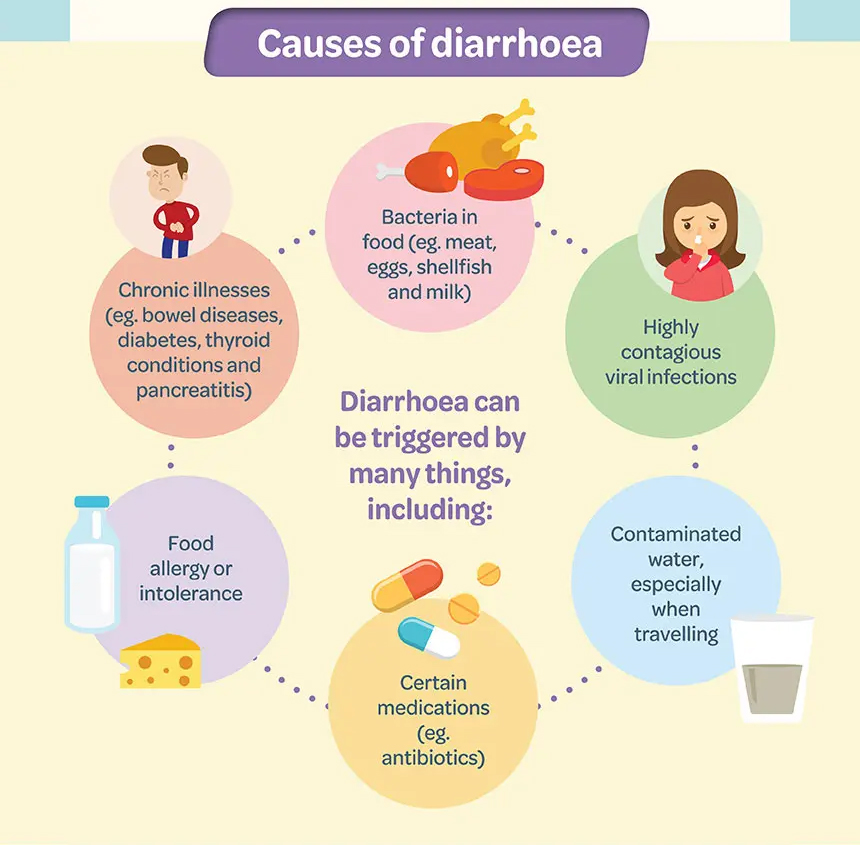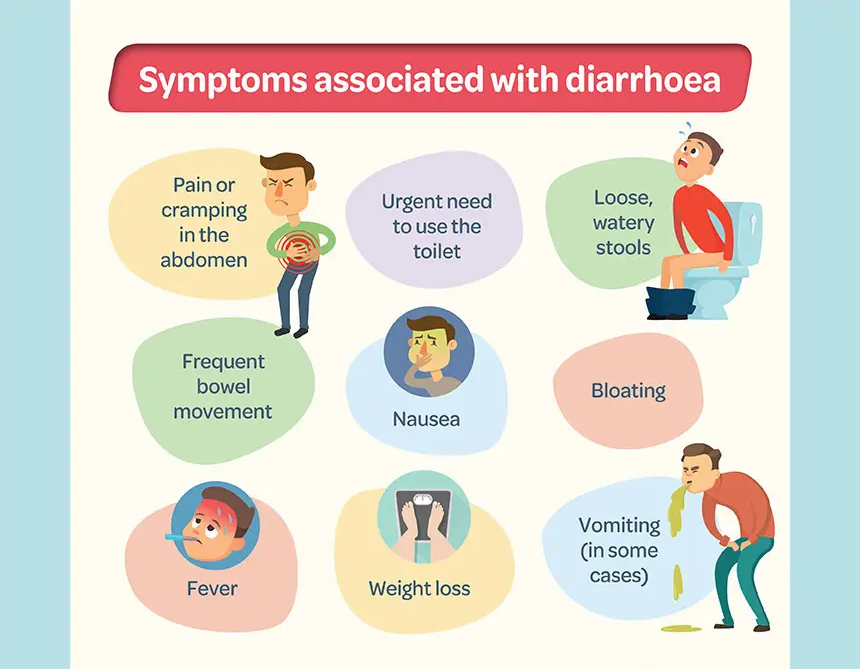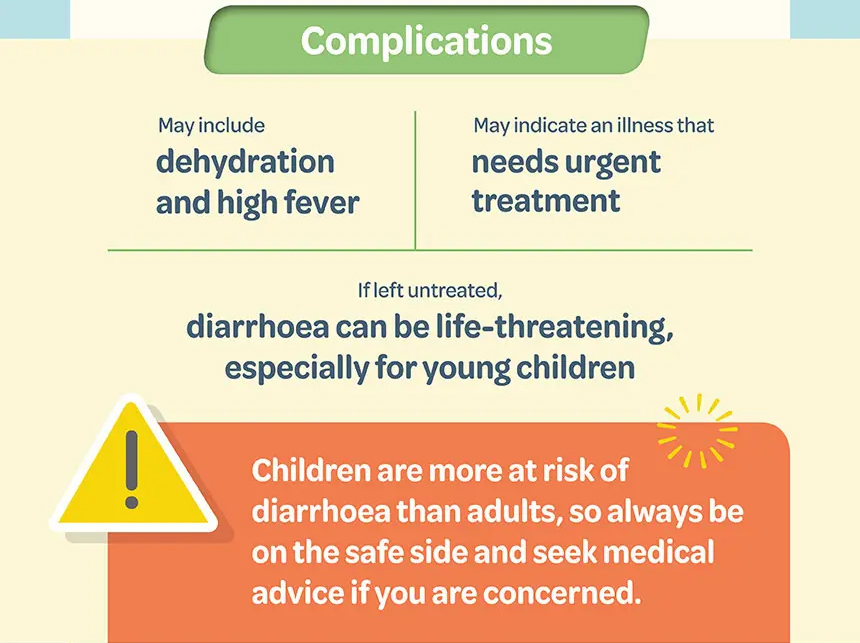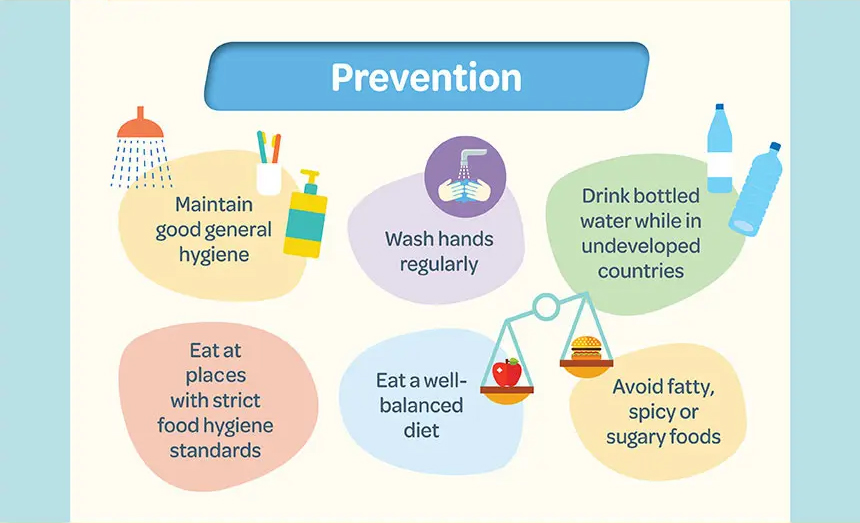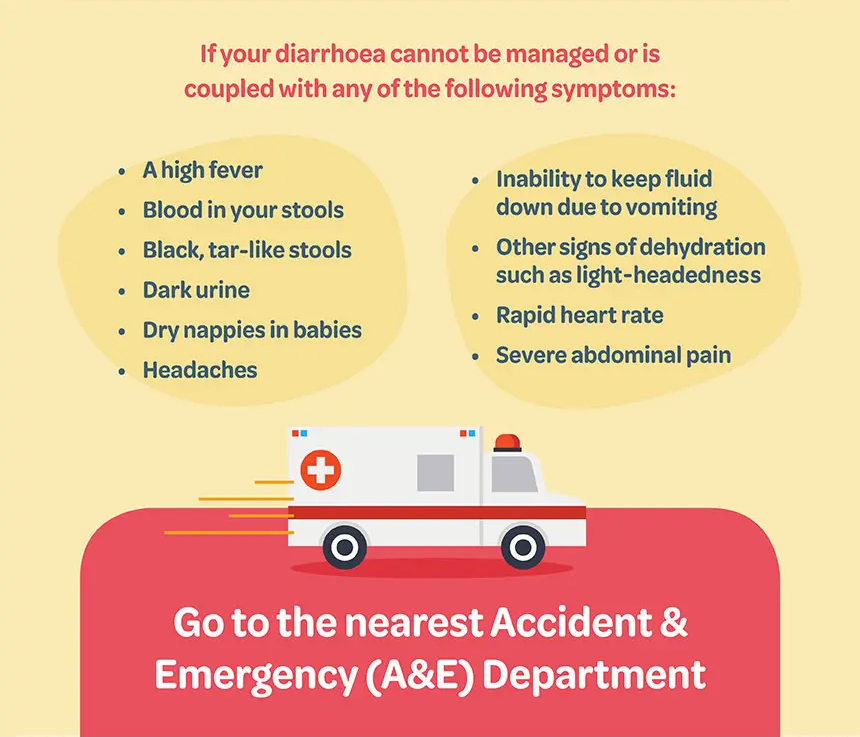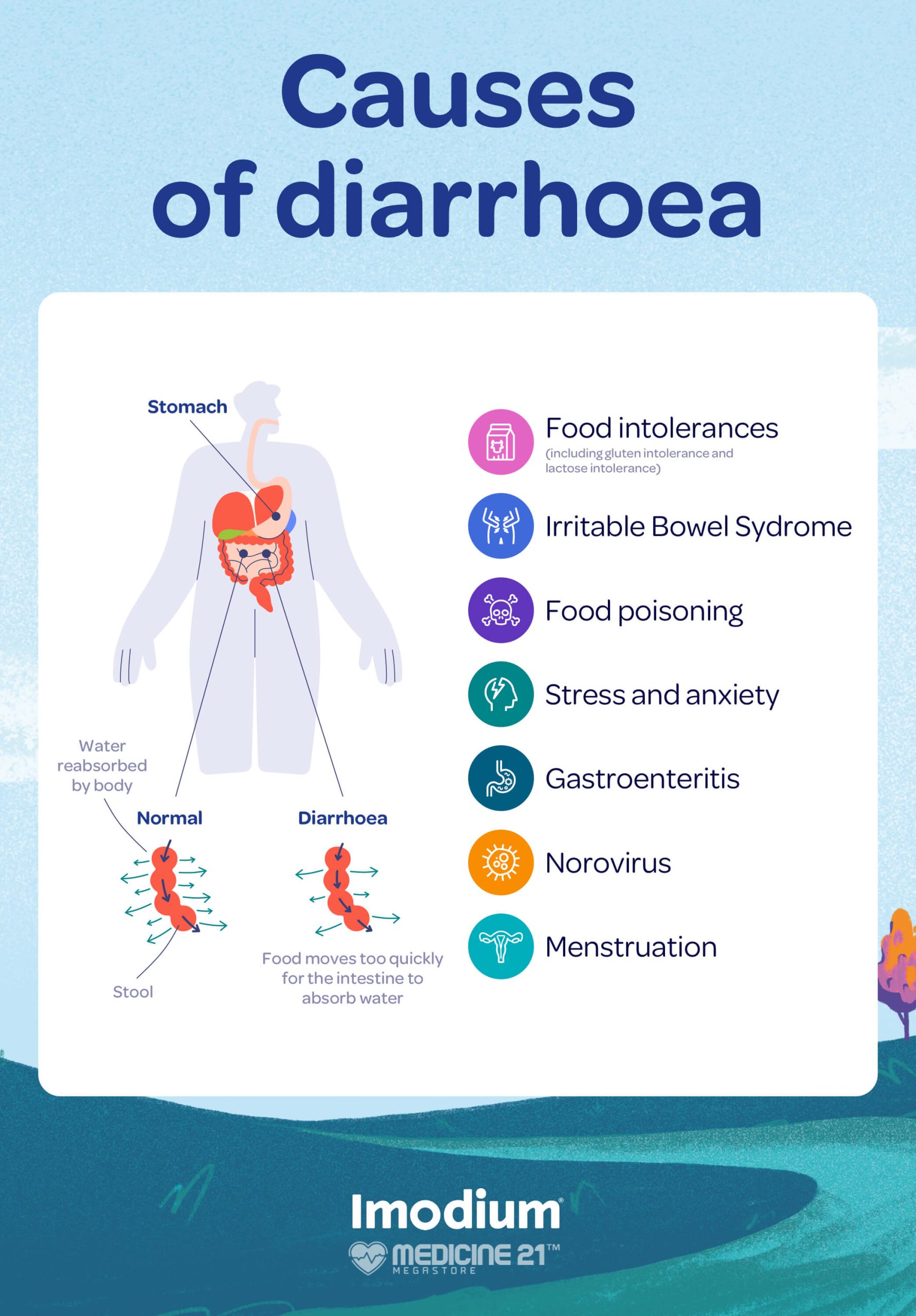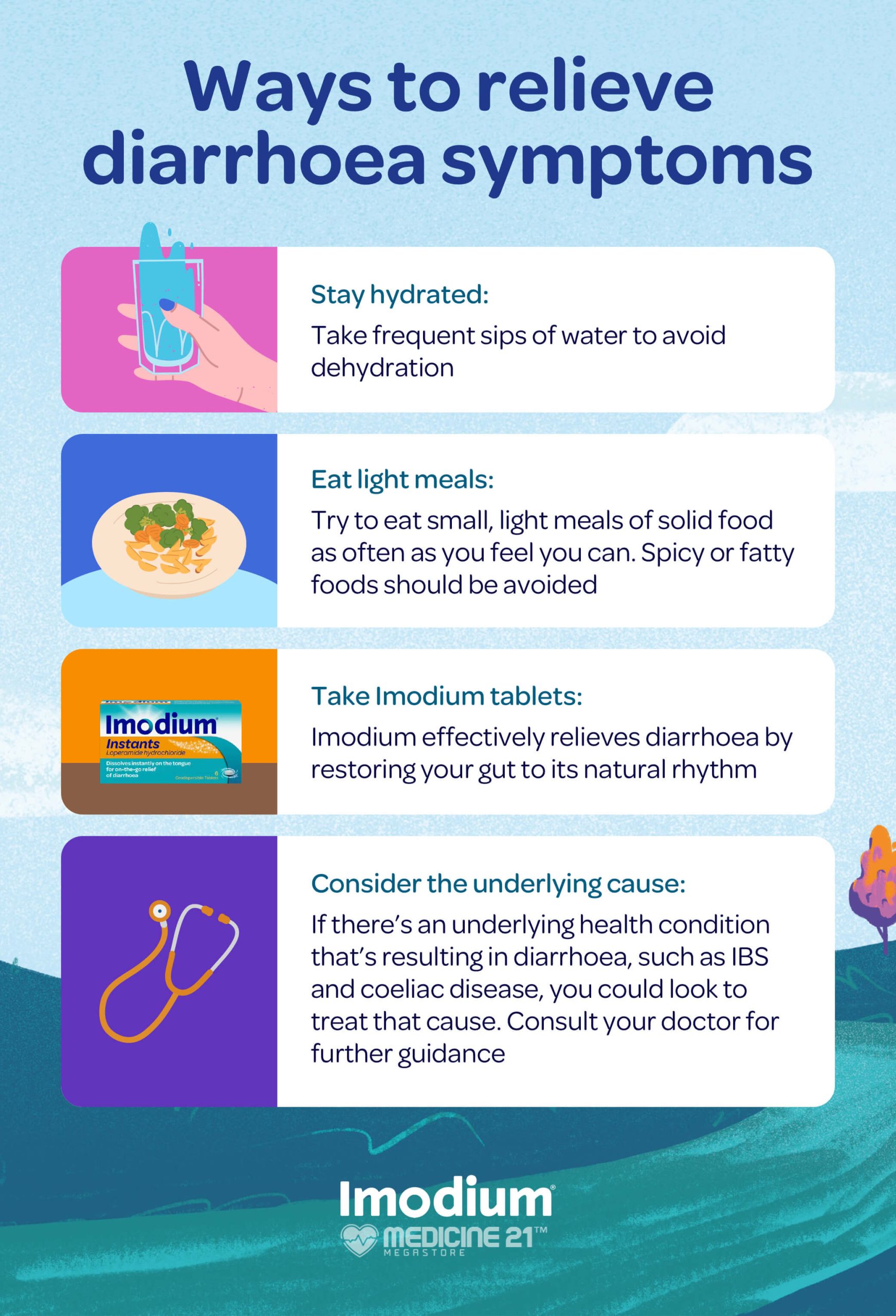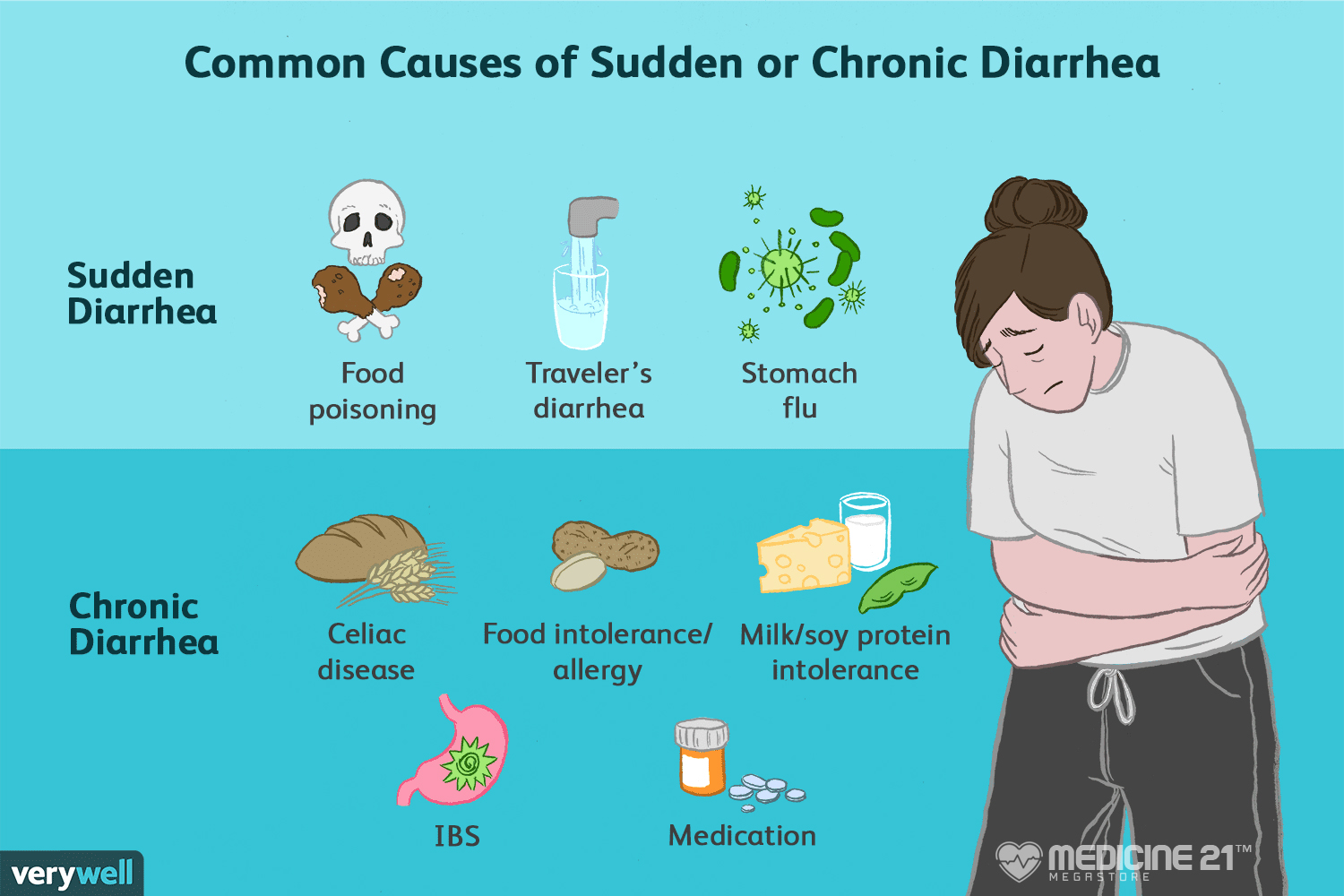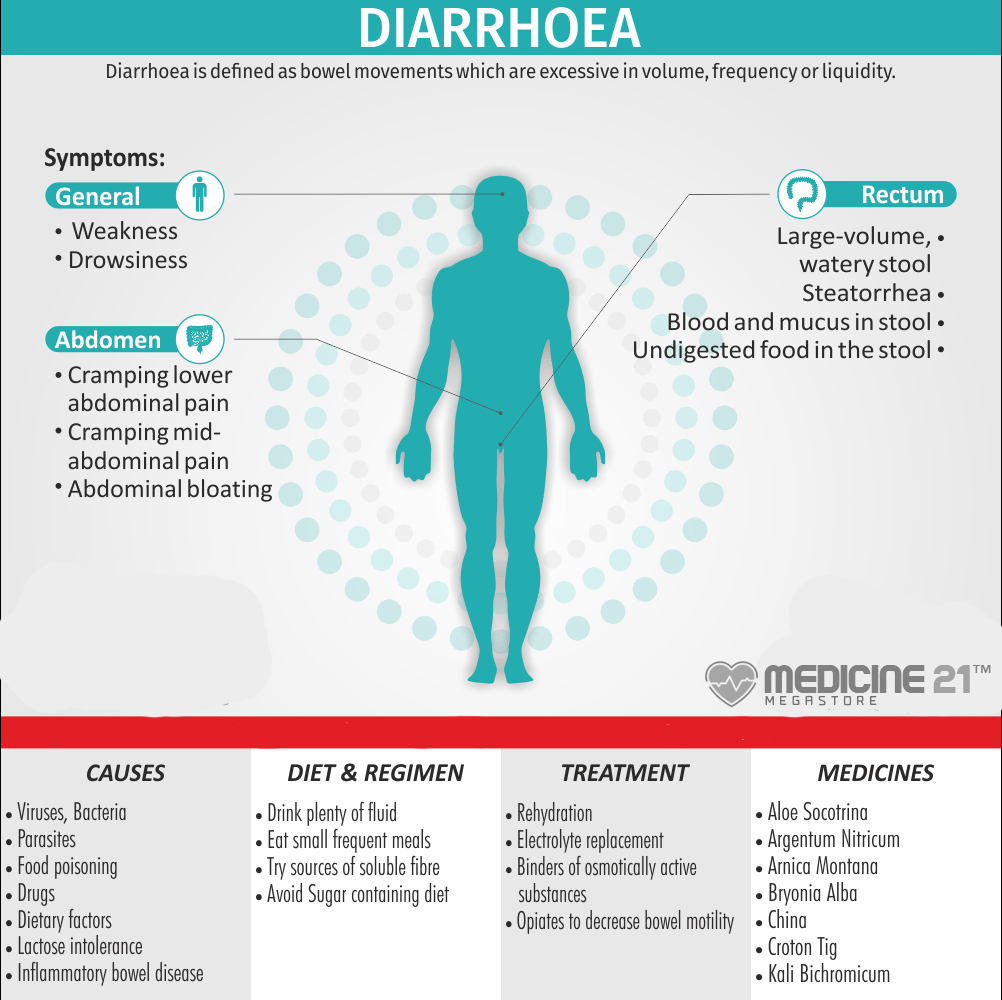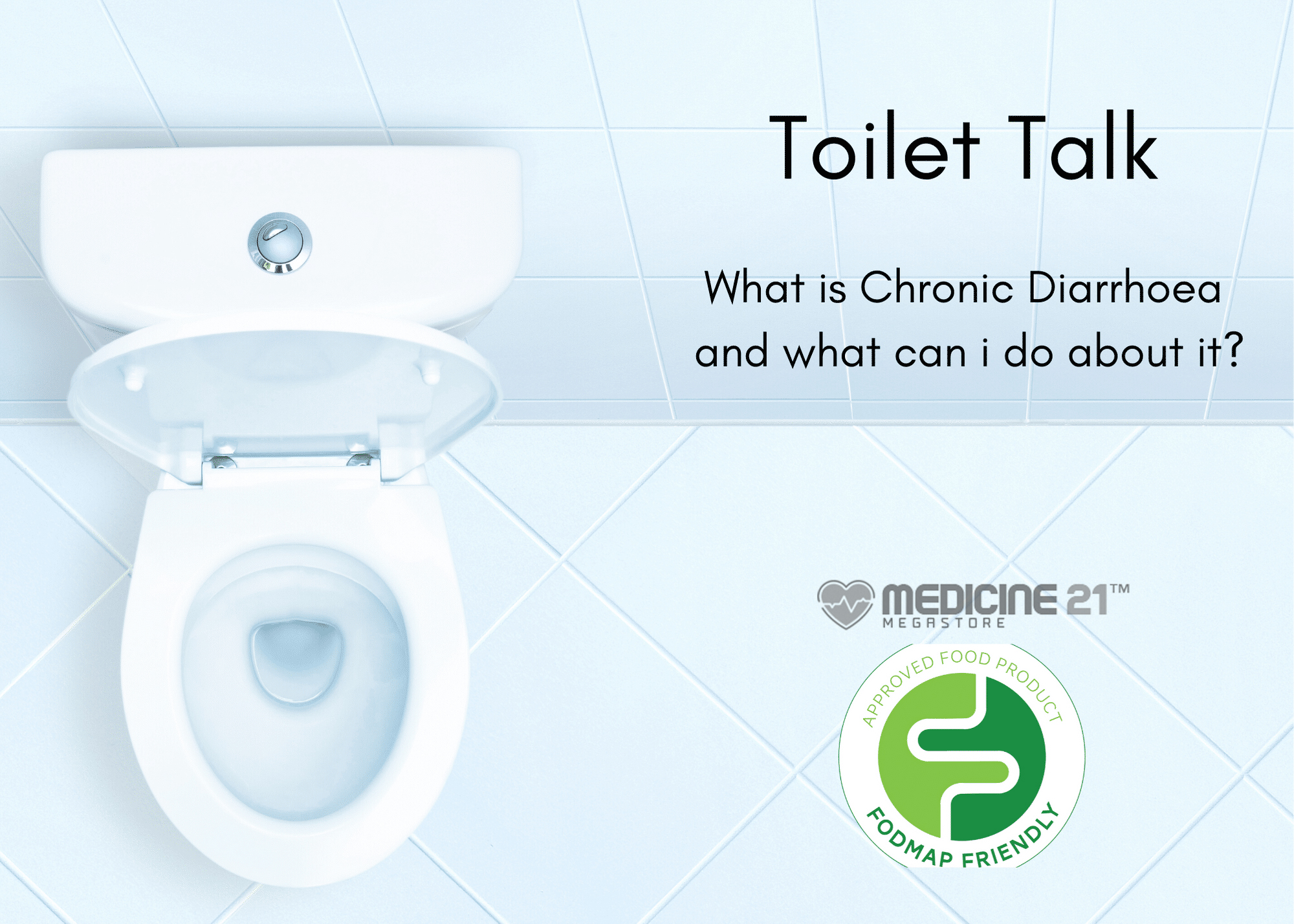
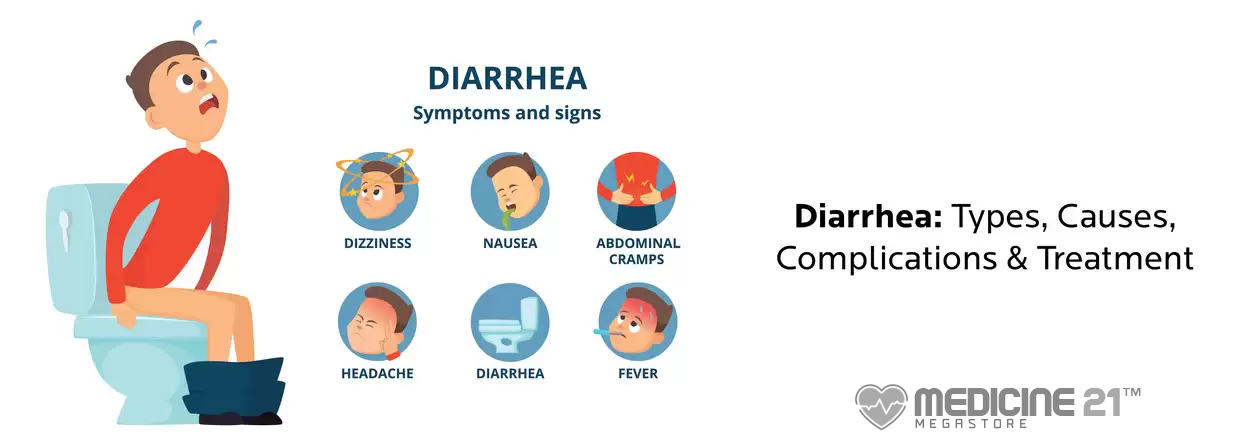
Key facts
- Most diarrhoea is mild and clears up in a few days without treatment.
- Diarrhoea has many different causes, but gastroenteritis is a common one.
- Avoiding dehydration is very important, especially for children and in older people.
- Children and older people should use oral rehydration solutions to replace fluids.
- Children should not take anti-diarrhoeal medicine.
- Ask your pharmacist or doctor before taking anti-diarrhoeal medicines — they may not be suitable for you.
What is diarrhoea?
Diarrhoea is having 3 or more loose or liquid stools (poos) in one day, or more frequently than normal. If you have diarrhoea, you will experience an increase in the volume, wateriness or frequency of your bowel movements.
Diarrhoea episodes are often caused by a stomach bug (gastroenteritis) and clear up on their own in a few days. However, there are many other causes of diarrhoea.
Most diarrhoea is mild, but it can also be severe — even needing admission to hospital.
This article covers diarrhoea in adults and children over 12 years. See diarrhoea in children for information about the symptom in young children.
What symptoms relate to diarrhoea?
As well as the loose and watery stools of diarrhoea, you may sometimes have other symptoms, including:
- nausea (feeling sick)
- vomiting
- fever
- headache
- bloating and flatulence (excess gas)
- abdominal cramps, with a colicky pattern
- stomach pains
- loss of appetite
- weakness
- dehydration
You may feel an urgent need to go to the toilet.
CHECK YOUR SYMPTOMS — Use the diarrhoea and vomiting Symptom Checker and find out if you need to seek medical help.
What causes diarrhoea?
Diarrhoea happens when not enough water is removed from your stool, or too much fluid is secreted into the stool, making it loose.
There are many different causes of diarrhoea. It can be caused by a short-term illness that clears up in a few days, or it may be a symptom of an ongoing problem or chronic condition.
Short-term causes of diarrhoea
Short-term diarrhoea is often due to infections, such as:
- viral gastroenteritis — for example, caused by rotavirus or norovirus-infection
- waterborne parasites, such as cryptosporidium and giardia
- bacteria that cause food poisoning, such as clostridium, salmonella, E. coli and campylobacter bacteria
Other causes of short-term diarrhoea include:
- change in diet
- certain food ingredients, for example the artificial sweeteners sorbitol and mannitol, and the natural sugar fructose
- drinking too much alcohol
- stress
Long-term causes of diarrhoea
Diarrhoea can be caused by some long-term conditions, such as:
- inflammatory bowel disease (Crohn’s disease and ulcerative colitis)
- irritable bowel syndrome
- food intolerances, such as lactose intolerance
- diverticulitis
- malabsorption syndromes — for example, after bowel surgery
- encopresis / chronic constipation — where diarrhoea overflows around impacted stool stuck in the bowel
People who are immunosuppressed or have weakened immune systems, such as those living with cancer, HIV/AIDS or who have had an organ transplant, are more likely to develop ongoing diarrhoea as a result of a bout of gastroenteritis.
Treatments which can cause diarrhoea
Some medical treatments may cause diarrhoea as a side effect:
- some medicines — for example, antibiotics
- laxatives, if too many are taken
- radiotherapy involving the abdomen or pelvis
- chemotherapy
More information is available about specific causes of diarrhoea and their symptoms.
When should I see my doctor?
An isolated episode of diarrhoea will generally clear up without any treatment.
Seek medical advice if you have any of the following:
- ongoing or severe diarrhoea
- blood and/or mucus in your stool (poo)
- fever as well as diarrhoea
- unexplained weight loss
- diarrhoea at night
- signs of dehydration (feeling tired, decreased urination, thirst and dry mouth)
Ongoing diarrhoea can lead to dehydration and an electrolyte imbalance, making it dangerous — especially to the very young or older people, who can be affected very quickly.
FIND A HEALTH SERVICE — The Service Finder can help you find doctors, pharmacies, hospitals and other health services.
How is diarrhoea diagnosed?
Diarrhoea can be diagnosed based on your symptoms and a medical history, taken by your doctor. If the diarrhoea goes away after a few days you may not find the cause.
Sometimes, tests will be needed to diagnose an underlying condition. These include:
- blood tests
- stool tests
- endoscopy or colonoscopy
- biopsy (very rarely)
If you have ongoing diarrhoea, your doctor may refer you to a gastroenterologist or other specialist to work out the underlying cause.
ASK YOUR DOCTOR — Preparing for an appointment? Use the Question Builder for general tips on what to ask your GP or specialist.
How is diarrhoea treated?
In the case of simple short-term episodes of diarrhoea, which usually clear up by themselves in healthy people, you will probably be able to manage your symptoms through home care.
You should try to do the following:
- rest at home
- stay off work or school until you have not had a loose bowel motion for 24 hours
- drink clear fluids or oral rehydration solution to replace lost fluids — take small sips if you feel sick
- avoid fruit juice, cordials and sugary drinks — they will prolong the diarrhoea
- avoid alcohol and caffeine
- manage your diet until you get back to normal — eat bland foods, such as rice, pasta and crackers, and avoid fatty foods or those high in insoluble fibre
Oral rehydration solutions
These are available over the counter from your pharmacist. For older people and children, oral rehydration solutions are a better choice than plain water. They are made specifically to replace both fluids and electrolytes (important minerals that your body needs to function) in the right concentrations. Sports rehydration drinks are not recommended.
Anti-diarrhoeal medicines
Anti-diarrhoeal medicines should not be used to treat a diarrhoea attack in babies or children.
Your pharmacist or doctor will be able to advise you if you are thinking of taking over-the-counter anti-diarrhoeal medicines. They are not suitable for use in the case of diarrhoea caused by certain specific infections. Do not take them if you have a fever or have blood in your stool.
Remember that diarrhoea is your body’s way of getting rid of a gastrointestinal infection, so these medicines should not be taken long term because they slow your gut and may prolong your illness.
Anti-vomiting drugs
Anti-emetics may be prescribed by your doctor if you have gastroenteritis and are having problems due to vomiting.
Intravenous fluids
People who are not able to adequately rehydrate — for example, because they are vomiting — may need to be given intravenous fluids via a drip.
Antibiotics
Most sudden attacks of diarrhoea are caused by viruses and so antibiotics, which are only used to treat bacterial infections, are of no use. If your doctor determines — usually through testing a stool sample — that your diarrhoea is due to a bacterial or parasitic infection, then they may prescribe antibiotics.
Dietary changes
If you are experiencing diarrhoea for dietary reasons or due to irritable bowel syndrome, an accredited practising dietitian (APD) should be able to suggest some dietary changes.
What complications are associated with diarrhoea?
Diarrhoea may cause dehydration. More fluids are lost from the body when you have diarrhoea than normally. Dehydration can lead to a loss of electrolytes — minerals your body needs to function properly. This is why rehydration is so important.
Diarrhoea causes food to move quickly through your body. If this is ongoing it makes it difficult for you to absorb nutrients and can lead to malnutrition.
Some people may develop temporary lactose intolerance after an episode of diarrhoea or gastroenteritis. See your doctor if the symptoms continue for more than a couple of weeks.
Can diarrhoea be prevented?
Gastroenteritis — the most common cause of diarrhoea — is highly infectious, and mostly spread by contact with another person who has the illness, or from contaminated food.
These measures can help to stop the spread:
- wash hands frequently using a good handwashing technique
- follow proper food-safety practices
- if a household member has diarrhoea, they should not prepare food for the other members, and everyone should follow regular handwashing and hygiene practices
- someone who has diarrhoea should not visit hospitals, aged care facilities, or swimming pools
- babies can be vaccinated against rotavirus
